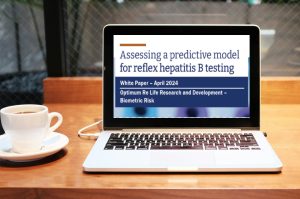Vitamin D Linked to Cognitive Decline
Related
Email Newsletter
Stay up-to-date with the latest news and information from the life insurance industry by subscribing to Insights, our monthly newsletter.
About
Follow Us
Links
Your Privacy Choices | Privacy Notices | Privacy Shield | Terms | Accessibility | Language Assistance / Non-Discrimination Notice | Asistencia de Idiomas / Aviso de no Discriminación | 語言協助 / 不䈚視通知
Quest, Quest Diagnostics, any associated logos, and all associated Quest Diagnostics registered or unregistered trademarks are the property of Quest Diagnostics. All third-party marks — ® and ™ — are the property of their respective owners. © 2000-2026 Quest Diagnostics Incorporated. All rights reserved.




















A recent study reported a link between initial low levels of Vitamin D in an elderly population and the subsequent progression of cognitive impairment. 858 individuals age 65 and older were evaluated for cognitive function using the Mini-Mental State Examination (MMSE) and the Trails Making A and B tests. Blood levels of Vitamin D were also measured. The study ran from 1998-2006 and cognitive assessments were repeated every 3 years. Results of the study showed: “The multivariate adjusted relative risk (95% confidenceinterval [CI]) of substantial cognitive decline on the MMSEin participants who were severely serum 25(OH)D deficient (levels<25 nmol/L) in comparison with those with sufficient levelsof 25(OH)D ( 75 nmol/L) was 1.60 (95% CI, 1.19-2.00). Multivariateadjusted random-effects models demonstrated that the scoresof participants who were severely 25(OH)D deficient declinedby an additional 0.3 MMSE points per year more than those withsufficient levels of 25(OH)D.” The authors concluded that low levels of Vitamin D were associated with substantial cognitive decline in this elderly population.
Arch Intern Med. 2010;170(13):1135-1141